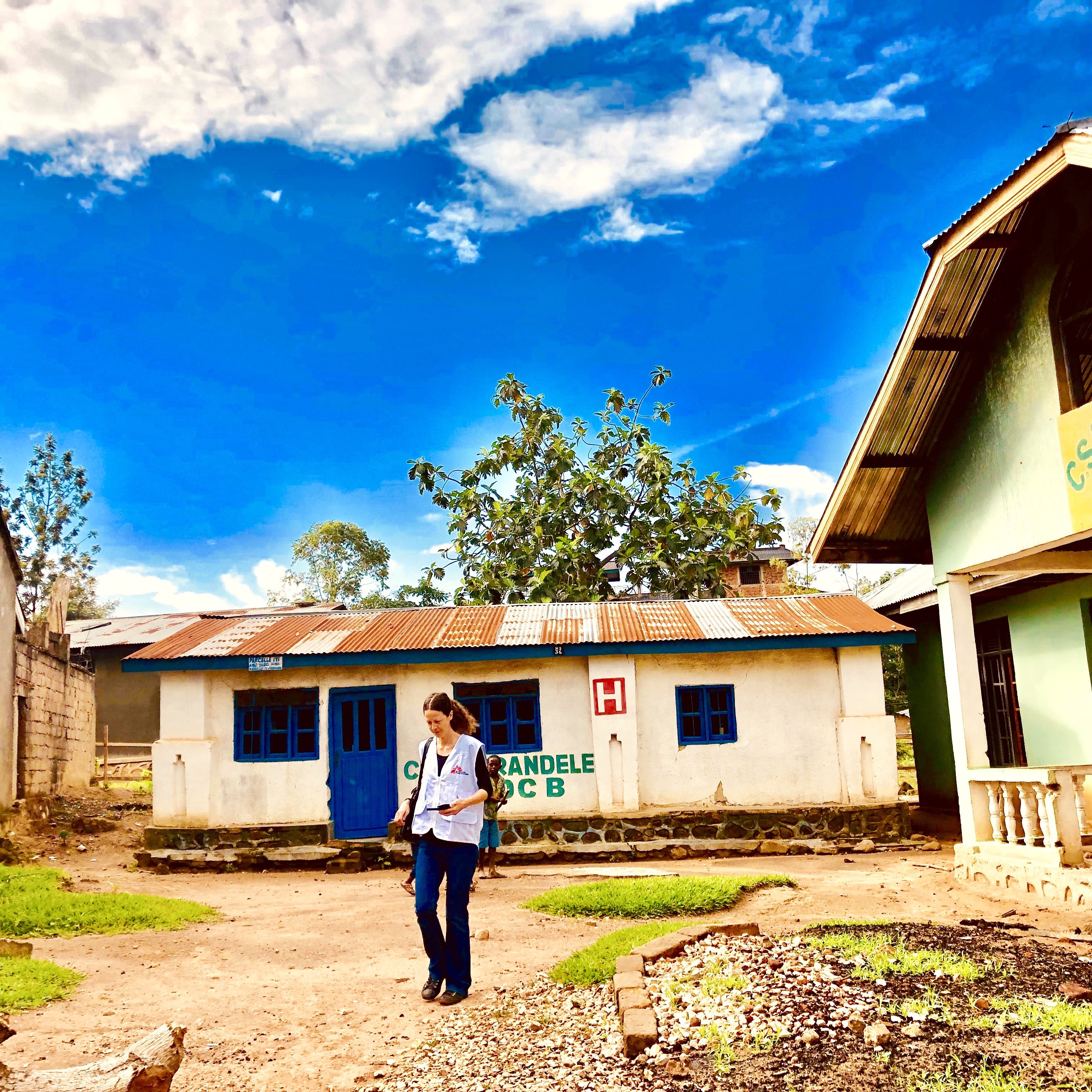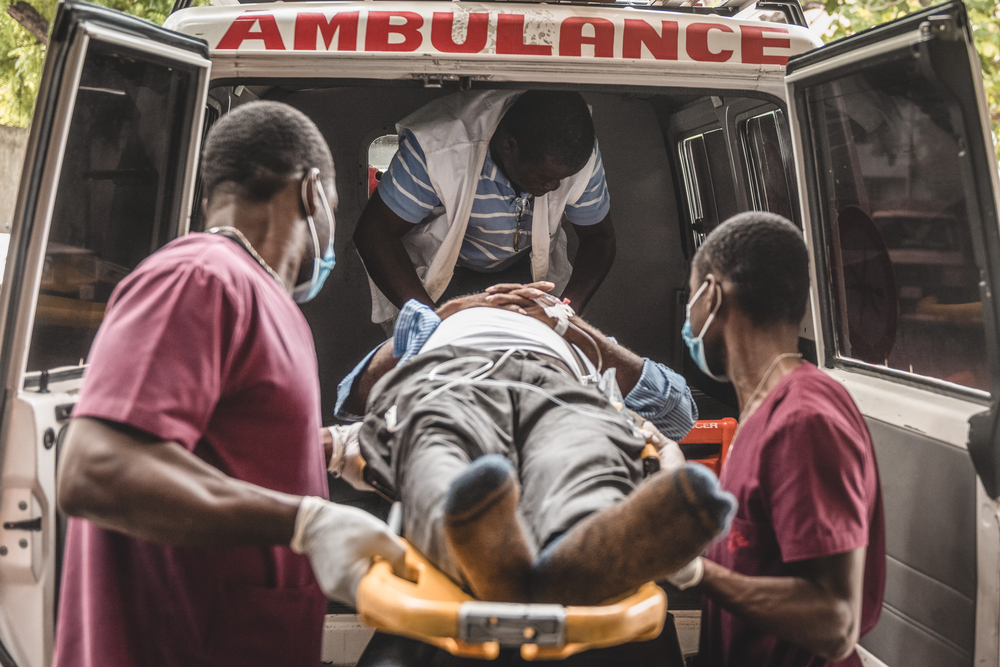
5 minute read
Working with MSF: Claire Manera
Staff profile:
Claire Manera, Project Coordinator
Home:
Perth, WA (Whadjuk Nyoongar Land)
MSF experience:
Emergency team in Somaliland, Democratic Republic of Congo, Uganda and Haiti.
Why did you join MSF?
I spent years working with other international non-government organisations and always admired MSF, because they’d go to the places no one else would go. They would get there before anyone else and they wouldn’t leave when the going got tough. They’re the ones that would stay.
What does it take to be a project coordinator?
You need to believe that you can get through any situation, because everyone looks to you for reassurance. You need to be positive for your team and be prepared to figure it out, even if you don’t know what you’re doing! When cholera came to Yemen in 2017, we all froze in panic. Especially as there was already a war going on and the country was really suffering.
The Yemeni staff set up the cholera treatment centre within 48 hours by following the MSF guidebook. They did an amazing job. At the start there were 100 patients a day coming through and by the time I left there were none. It was an incredible achievement for the team.
What are the best parts of the project coordinator role?
As a project coordinator, because you are on the ground with the team, you meet people who are really at the core of the project and you are there beside them. A big part of the role is sitting with people and listening to them, because that’s the way you get to know what’s really going on. Talking to the local commander talking about football is the best way to find out where the fighting is, or hanging out with women in their fields is when they’ll tell you what they really need. You meet the bravest people that way and hear their inspiring stories.
How does working on an emergency team compare with working in an ongoing project?
It’s exciting and terrifying to work on an emergency team. You always have to be ready to go at short notice and often you don’t know what you’ll be doing. But MSF has so many experienced people, which means everyone brings amazing ideas to the table. In regular projects, it is more building on what’s already there. When we had to open a trauma hospital in Haiti, the population was rioting. Everything was set on fire in the streets, but they would move everything aside to let us through. That’s because they knew MSF already from being there for so many years, and they knew we did high quality work.
You have just returned from Kayna, Democratic Republic of Congo. What work are you most proud of from this assignment?
The medical team trained mothers to do nutrition screening themselves with MUAC (mid-upper arm circumference) tapes. It meant that women could monitor malnutrition and would know when to get to the hospital for treatment. We would give children that we admitted to the hospital a kit that included things like a bucket, soap and a blanket to take home. This was something we could offer that was also motivation to come and get treatment. But many mothers were still having to make difficult choices: ‘Do I stay where I am and feed my other children or do I walk three hours to seek treatment at the health centre?’, often risking their lives to walk alone and very often, facing sexual violence. They don’t have money to pay for treatment so it’s good that MSF was there to provide this for free.
What keeps you coming back to work with MSF?
There’s nothing I would rather be doing than this job and I feel lucky to be able to do it. I sometimes feel more at home when I’m away on assignment, because with MSF, you are all working together to help as many people as you can. And being around all of these amazing people, who have so many different experiences and stories, inspires me to keep doing it.

APPLY WITH US
Find out about working with MSF at one of our online recruitment information evenings.
Register for our 4 October webinar, ‘Insider Tips for Applicants’, to gain a unique insight into the essential skills and experience we look for in candidates, why these skills are important, and how to best prepare for working with MSF.
We will be joined by experienced MSF team members, Peter Clausen and Jennifer Craig.
msf.org.au/event/insider-tips-webinar
WE NEED NON-MEDICAL SPECIALISTS
Want to work with us, but not a medical or health professional?
MSF recruits non-medical and support specialists, too! If you have a background in solar energy, engineering, construction, supply chain, water and sanitation, finance or human resources, and more, we would love to hear from you.
Visit msf.org.au/join-us










